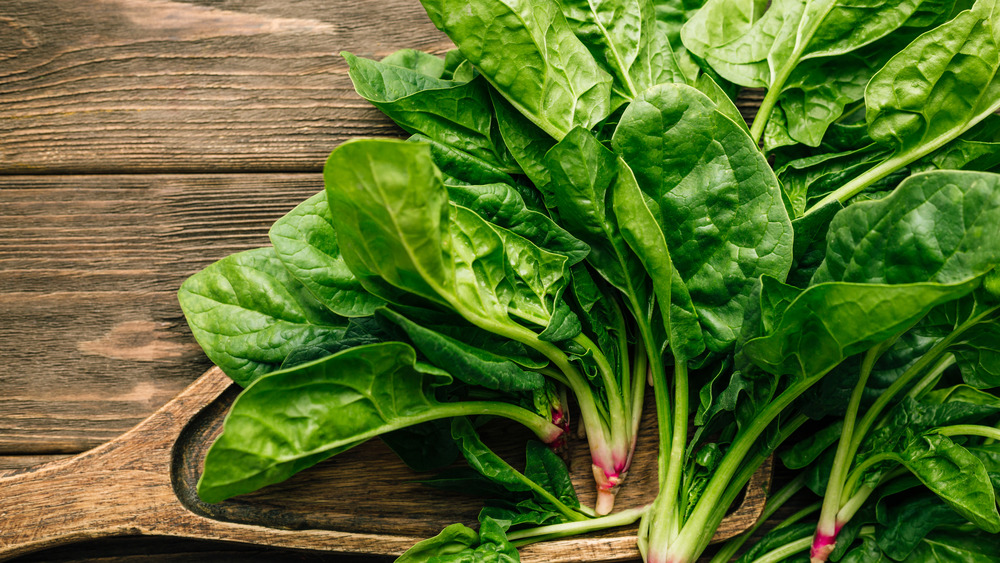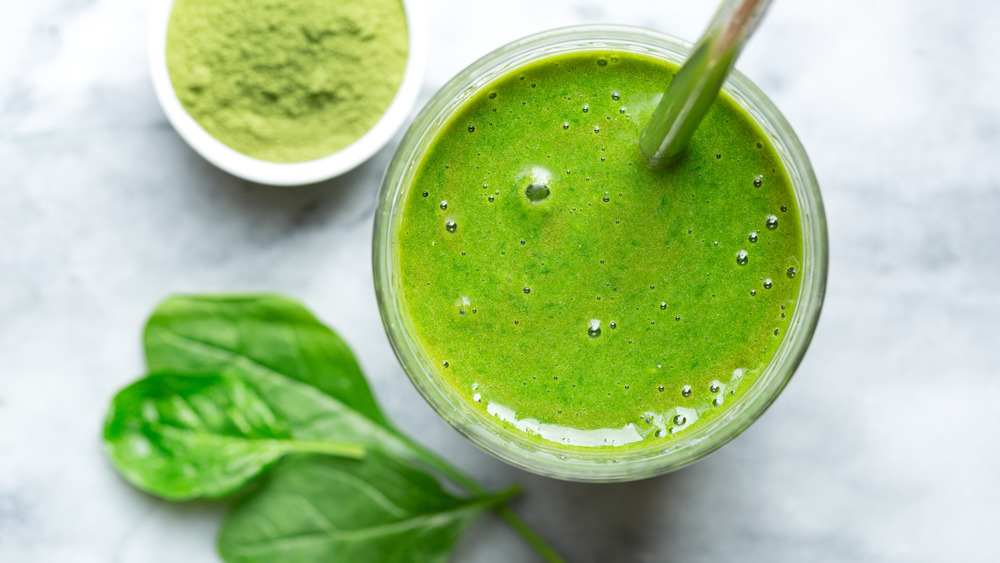When You Eat Too Much Spinach, This Is What Happens To You
You know when others warn you there can be too much of a good thing? Well, we never thought that could be applied to the amount of spinach we eat. Perhaps it's too late for Popeye to get the message, but there are actually risks to consuming too much of this leafy green goodness. According to Livestrong, eating too much spinach can lead to negative health effects.
But before we go into the risks, let's discuss the rewards. Healthline tells us that eating spinach may help improve our eye health, prevent cancer, and reduce both stress and blood pressure levels. In fact, 3.5 ounces of raw spinach has only 23 calories, 2.9 grams of protein, an incredibly low 0.4 grams of fat, and 3.6 grams of high fiber carbs. With a breakdown that would make even the healthiest of other foods look poor in comparison, it truly is surprising that eating too much of it could cause complications. But it's true! Livestrong states that too much spinach can lead to health complications like blocked calcium absorption. This happens because along with other nutrients, spinach contains high levels of oxalic acid. And when ingested, this acid combines with calcium and forms insoluble salts called oxalates. A build up of oxalates may prevent the calcium you are ingesting from your food from being absorbed by your body.
Be mindful if you're taking certain medications or are prone to kidney stones
A build up of oxalates can also lead to other, more painful health conditions. According to WebMD, the most common type of kidney stones people are diagnosed with are calcium oxalate stones. And as previously stated, we know oxalates are likely to form if we consume too much oxalic acid. Luckily, if you eat or drink a calcium-rich food, like yogurt at the same time as eating spinach, it can help the body in dealing with the potentially harmful amount of oxalate acid.
Consuming too much spinach could also mean that you get too much vitamin K. While vitamin K is considered an essential nutrient and works its magic by helping our body with blood clotting, Livestrong tells us that too much of it can lead to some serious side effects if you're taking certain medications. If you are taking anticoagulant medications, watch the amount of spinach your are consuming, as it may lower the medication's efficacy. Too much vitamin K-1 can also be harmful when combined with diabetes medications because it could cause blood sugar levels to sink dangerously low.
We're not trying to scare you away or give you an excuse to avoid this nutrient-dense vegetable. No way! You should keep it as one of your regular salad or smoothie ingredients, but just like with many other foods and beverages, moderation is key.


